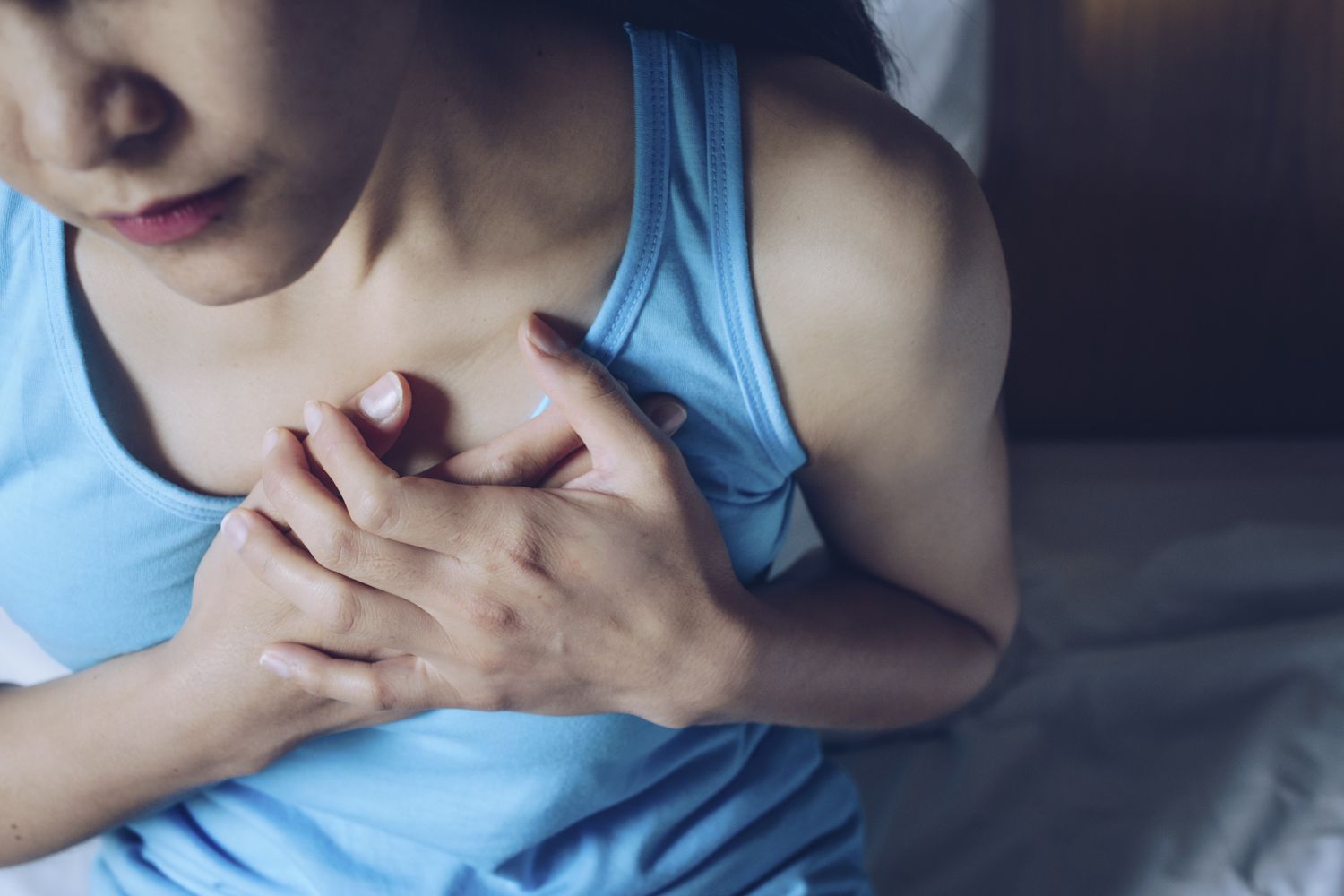
Now that the new coronavirus pandemic has spread across the U.S., most Americans are well aware of the symptoms of COVID-19: cough, fever and shortness of breath. That last symptom is one of the most worrisome, a possible sign of pneumonia and one that could require hospitalization in severe cases.
Shortness of breath, though, is also a common sign of anxiety, an extremely common mental health disorder that becomes far more frequent in times of high stress — like living through a global pandemic, for example.
And as people consume the news and read about the likelihood of contracting COVID-19 as well as the lack of respirators available to treat patients with severe cases, it’s no surprise that breathing can shorten, leading someone to wonder if they have COVID-19, or if it’s a symptom of anxiety.
“Anxiety and stress can impact our breathing in a way that triggers a condition, asthma, or can mimic a condition, like pneumonia,” Dr. Kevin Gilliland, a clinical psychologist, director of Innovation360, an outpatient resource center, and member of PEOPLE’s Health Squad, says.
To differentiate between the two, says, Gilliland, it helps to look back.
First, he advises, “Be as factual as possible, no emotions, just collect some data. Start by looking at what triggered the shortness of breath. When did it start? Did it start after reading and watching news for hours about the virus? Do you have things going on that are stressful, anxiety producing, sad or uncertain?”
After considering that, think about “the other side of the question: Have you been with someone who tested positive for COVID-19 or who has severe symptoms? Have you been around high exposure locations? Do you have any of the other symptoms of the illness, such as fever or dry cough? If you do have other symptoms, follow the recommended procedures [for getting checked for the virus].”
For those with anxiety, there are exercises that can help to slow breathing and reduce stress.
“The first one is to breath in for four counts and breath out for four counts,” Gilliland recommends. “This slows your body, and that slows the mind. Another is to walk and breathe, matching your breath and your pace, trying to let your walking slow your breathing.”
He also offers this suggestion: “Go to your freezer and grab a few handfuls of ice and hold your hands over the sink while it melts. I know, sounds crazy until you try it. It works for a lot of people.”
“And lately, people have found the weighted blankets helpful for combating panic attacks,” Gilliland adds.
Another option, he says, can “kill two birds with one stone” by reducing anxiety and improving your hygiene to protect against COVID-19.
“Go wash your hands in warm water and take longer than normal,” he says. “Hyper-focus on your hands, the soap, how it feels, how many bubbles you produce, the scent of the soap. All of these things distract your mind and when you do that, your body starts to settle.”
Gilliland says that it’s important to recognize that this is going to be a stressful time, and for each person to identify what helps them relax.
“Accept that we all have a significant amount of stress and that impacts our body,” he says. “Be more aware of your mind and how it responds to the things you are doing or reading. Start to connect the dots, when you feel calm, what were you doing? When you feel anxious, what were you doing or thinking?”
“Practice all things that decrease anxiety and stress and that will positively impact your breathing and health.”
As information about the coronavirus pandemic rapidly changes, PEOPLE is committed to providing the most recent data in our coverage. Some of the information in this story may have changed after publication. For the latest on COVID-19, readers are encouraged to use online resources from CDC, WHO, and local public health departments. To help provide doctors and nurses on the front lines with life-saving medical resources, donate to Direct Relief here.
Source: Read Full Article






